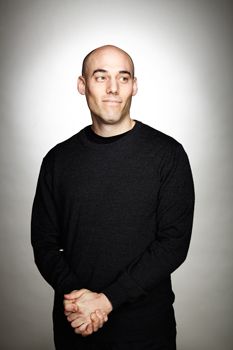The Making of The Act of Killing
This year The Act of Killing was nominated for an Oscar for the best feature documentary. The film was of particular interest to those who work in the field of testimony, as Joshua Oppenheimer interviewed many perpetrators of killings in Indonesia in the 1960s. Below is an excerpt of Oppenheimer’s talk, which he gave in Los Angeles on the eve of the Oscars, describing his own journey of discovery as he encountered perpetrators willing to describe, even boast about, their acts of killing.
The Making of The Act of Killing
By Joshua Oppenheimer
I first went to Indonesia in 2001 to help a group of palm-oil plantation workers make a film documenting their struggle to organize a union in the aftermath of the Suharto dictatorship, when unions were illegal. I didn’t know anything about the Indonesian genocide. I didn’t know it had occurred.
Right after we made that film, these people whom I know and understood were survivors of the genocide asked me to come back to make another film about an even darker chapter in their history. They wanted me to document what it’s like to live every day when the perpetrators of violence are still in power.
“Try to film the perpetrators,” they asked. “Try to film the aging death-squad leaders who live all around us. Start with your next-door neighbor. They can tell you if they have killed our relatives.”
I then spent two years filming every perpetrator I could find across Malaysia or Sumatra. To my horror, not only were they open about what they had done, they even boasted about it. It felt like I had wandered into Germany 40 years after the Holocaust, only to find the Nazis still in power.

Listening to them, I had the sense that I was getting something closer to performance than to the sober testimony to which we’re accustomed as filmmakers.
This raised many questions for me. For whom were they performing? Is this how they want others to see them? And how do they see themselves, and why?
I felt if I could answer these questions, the whole façade that the genocide was something heroic would somehow come crumbling down.
I met Anwar in 2005. He was the 41st perpetrator I filmed in that period, and I did something that I didn’t do with the previous 40.
The first day I met him, I could see that he felt some kind of trauma, and I wondered if he would recognize the meaning of what he had done, the meaning of what he was talking about.
And so I screened the footage back to him. There is a moment in the beginning of the film when you see him watching himself on the roof. It’s clear that he is disturbed about something and it’s easy to assume he’s thinking “Oh no, this is awful.” Or “What I have I done?” Or “This is going to make me look bad.”
But he doesn’t dare, because to say any of those things would be to admit that his actions were wrong. Instead, fueled by his vanity, I suppose, he says what’s wrong is his clothing, and his hair, and his acting. And he proposes an improvement, as though if he could make the scene right, he could make what he did right.
So began this five-year process, which was essentially the same method again and again. I would agree to shoot each new scene that he would propose because it was always shedding new light on either what they did, or on the regime that is still in place today.
Victims can tell you about it. They can tell you about what they’ve lost, about the experience of living with terrible loss, but they can’t tell you about what made the people do it. And so we have to talk to perpetrators, including perpetrators who are still flourishing with impunity.
The editor of Tempo Magazine, the largest news publication in Indonesia, phoned me after he saw a longer cut of the film. He said, “Josh, there was a time before The Act of Killing, now there will be a time after The Act of Killing. I’ve been censoring stories about this genocide for as long as I’ve been in this job. And I won’t do it anymore. Because your film shows me, above all, that I don’t want to grow old as a perpetrator.”